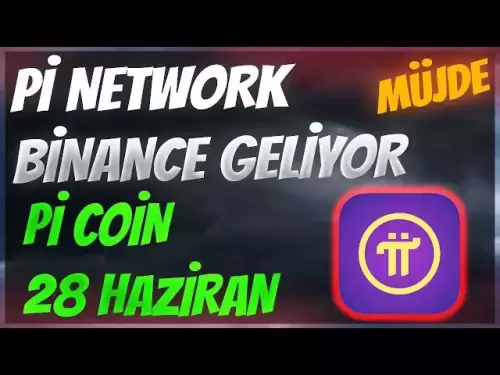 |
|
 |
|
 |
|
 |
|
 |
|
 |
|
 |
|
 |
|
 |
|
 |
|
 |
|
 |
|
 |
|
 |
|
 |
|
Cryptocurrency News Articles
SEC Chair Backs DeFi and Self-Custody – Promises Clearer Rules for Crypto and Bitcoin
Jun 12, 2025 at 03:30 pm
In a major shift from the SEC's previous stance, new Chairman Paul S. Atkins is signaling support for decentralized finance, crypto innovation, and

New SEC Chair Paul S. Atkins is signaling support for decentralized finance, crypto innovation, and individual ownership of digital assets in a major departure from the previous administration's approach.
Speaking at the Crypto Task Force Roundtable in Washington D.C., Atkins is setting a different tone than his predecessors as he discussed how the SEC should engage with emerging blockchain technologies.
“DeFi and the American Spirit” is a fitting title for this event, Atkins began.
Decentralized finance, he said, is closely linked to the core values that the U.S. was founded upon: economic freedom, private property rights, and innovation.
Atkins added that blockchain technology is not only an inventive creation but also a technology that has the potential to fundamentally reshape how we own and transfer assets online.
One of the most important parts of his remarks came when he addressed staking and network participation.
Atkins said that simply participating in a proof-of-work or proof-of-stake network—either as a miner, validator, or staking provider—should not be considered a securities transaction.
He thanked the SEC’s Division of Corporation Finance for clarifying this view but noted that guidance isn’t enough. He called on the Commission to pass an official regulation that carries the full force of law.
“We should not be shutting down new technologies that can benefit our economy and our people,” he said.
Atkins also went on to defend the right for crypto assets to be self-custod i n personal wallets.
He argued that people should be able to hold their own digital property without being forced to go through intermediaries who add fees or limit what users can do on-chain.
According to Atkins, this right is just as important online as it is offline and aligns closely with traditional American values.
He added that people are capable of making their own choices and understanding the risks involved in the financial products they decide to use.
Atkins went on to criticize past regulators who he said discouraged innovation by suggesting that developers of crypto wallets or DeFi software were acting as unlicensed brokers.
He pushed back against that interpretation, comparing it to saying that a car company should be blamed if someone uses a self-driving car to commit a crime.
According to Atkins, developers should not be punished simply for writing code or building technology that can be used for good or bad purposes.
The SEC chair went on to praise self-executing blockchain systems that operate without human operators.
He noted that while centralized platforms and institutions encountered difficulties during recent market crashes, on-chain protocols continued to perform as designed.
These systems, he said, demonstrate how blockchain can support a more open and resilient financial infrastructure.
However, he also acknowledged that the SEC’s current rules weren’t designed for this new category of technology. Most regulations were written to cover traditional financial players like brokers, advisers, and exchanges—not software protocols that organize themselves.
Atkins said the SEC must look into new rules or guidance to help the market adjust and provide companies with a clear way to comply with the law in this rapidly changing domain.
To move things forward, he proposed something called an “innovation exemption.” This would allow certain crypto products and services to launch under a temporary approval, as long as they meet specific conditions.
The goal is to help honest developers bring new ideas to market without facing years of legal uncertainty, which ultimately drives them offshore.
Atkins tied this idea directly to President Trump’s goal of making the U.S. the “crypto capital of the planet.”
In closing, Atkins said he doesn’t view the future of finance with fear but rather welcomes the opportunity for innovation.
He believes that new technologies should be encouraged, not shut down, and that the U.S. has a critical role to play in shaping the future of the global financial system.
If the SEC follows through with these proposals, the U.S. could finally begin to build a clear and fair path for crypto builders, investors, and users. Otherwise, the door will remain open for other nations to take the lead in this emerging sector.
Disclaimer:info@kdj.com
The information provided is not trading advice. kdj.com does not assume any responsibility for any investments made based on the information provided in this article. Cryptocurrencies are highly volatile and it is highly recommended that you invest with caution after thorough research!
If you believe that the content used on this website infringes your copyright, please contact us immediately (info@kdj.com) and we will delete it promptly.
-

-

- The crypto market experienced a dramatic surge in failed tokens during the first quarter of 2025
- Jun 15, 2025 at 12:05 pm
- According to a CoinGecko report, over 1.8 million crypto tokens were abandoned or failed in this year's first three months. This number represents nearly half (49.7%) of all token failures recorded since 2021.
-

-

- Robert Kiyosaki Predicts Bitcoin to $300,000 Crash, Lists Options for Those Scared of a Market Collapse
- Jun 15, 2025 at 12:00 pm
- Robert Kiyosaki, an expert in financial education, also known for his bestselling book “Rich Dad Poor Dad” and others, has published a tweet about the poor state of the global economy, a market crash he predicted, and how it may hit the Bitcoin price.
-

-

-

-

-





























































